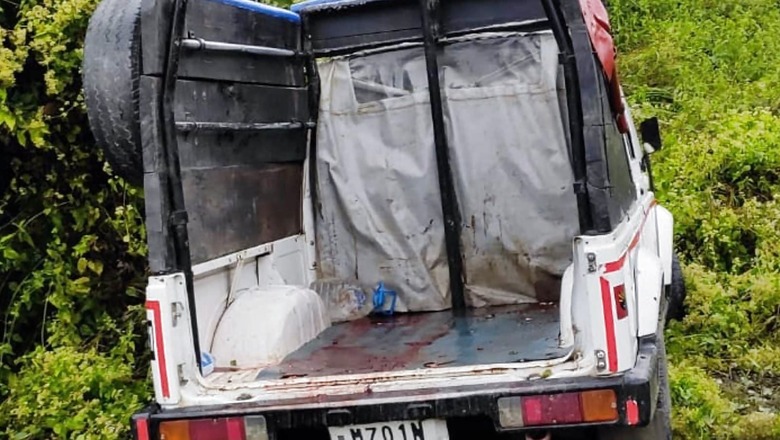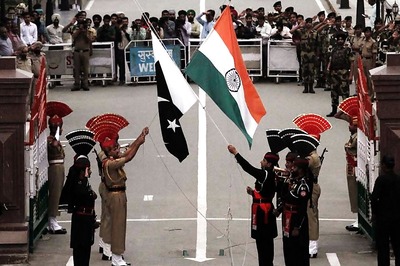
views
Manipur is one of the most vibrant states of Northeast India, which shares borders with Myanmar. It has picturesque countryside, abundance of natural resources, salubrious climate, highly talented human resource with immense potential for economic growth. After the state was carved out in 1972, several militant groups came into existence demanding independence. United National Liberation Front (UNLF), People’s Liberation Army of Manipur (PLA), People’s Revolutionary Party of Kangleipak (PREPAK) and Kangleipak Communist Party (KCP) are some of the many insurgent groups operating in Manipur. Notwithstanding these insurgent movements, over the years, the state of Manipur has fully integrated itself into the Union of India, which is evident from the fact that despite being a small state, a disproportionately high number of sports persons, both men and women, hailing from Manipur represent the country at international level. This fact is testimony to the talent, attitude, national spirit and commitment of the people of Manipur to the country.
Manipur experiences periodic cycles of comparative peace and violence. Law-and-order situation appears to be normal on the surface but there is always a simmering disquiet with potential for violence due to presence of armed cadres of various militant organisations in the state. Recent ambush of 46 Assam Rifles convoy which resulted in loss of the commanding officer, his wife, son and four soldiers besides six other soldiers being critically injured shows how fragile is peace in the state. The last incident of similar magnitude happened in 2015 in Chandel district where Army lost 18 soldiers. That dastardly act was followed by a swift cross-border military operation undertaken by the Indian Army in coordination with the Myanmar army. Militants often launch such ambushes to avenge the losses suffered by them due to successful counter-insurgency operations conducted by a newly inducted proactive battalion.
Based on almost a decade of service in the Northeast, out of which a substantial part was in Manipur, one knows that there are far too many insurgent groups who have varying and often conflicting demands, which make negotiations by the Union or state governments difficult. Inter-group rivalries also become the cause of violence. The local population is peace-loving and progressive but cannot stand up against the militants in the absence of a conducive environment.
Fighting Narco-terrorism, Arms Smuggling
Besides the local Manipur issues, the activities of National Socialist Council of Nagaland (NSCN) in the hill areas of Manipur have often been the cause of violence in the state. Over the years, ethnic clashes between the Nagas and Kukis (another significant tribe) have further added to the already boiling pot. Cross-border support from Myanmar’s militant groups through the porous Indo-Myanmar border keeps insurgency alive because militants can escape whenever Indian security forces undertake intense operations.
Over the years, several splinter groups have come up to operate in Manipur. Formation of new insurgent groups and resultant violence is not necessarily driven by ideology but often by other extraneous factors. Due to geographical location of Manipur, which is close to the Golden Crescent (comprising Myanmar, Thailand and Laos), narco-terrorism has become a thriving industry and a great motivating factor for the unemployed youth to join insurgent groups.
Funds generated from narcotics help insurgents to buy weapons and sustain themselves. Extortion by the insurgents is common and is facilitated by armed youth, absence of law and order besides poor governance. Writ of the insurgents often prevails over that of the state thereby impeding development. It would not be out of place to state that a large portion of government funds end up financing insurgency due to regular illegal tax collection by the insurgents from the contractors and even government servants who comply out of fear and to ensure their own safety and that of their families.
China which was once a competitor to India has progressed by leaps and bounds during the last four decades, both economically and militarily. China is known to have supported Naga and Mizo insurgency in the initial years when insurgents were trained in Yunnan province and Lhasa as per the CIA reports; however, it later shifted the training bases to Myanmar. An unstable Myanmar is surely a cause of worry for India. There have been periodic reports of Chinese weapons finding their way to the militants in Northeast India. An assertive China which has been extremely aggressive along the LAC may again employ low-cost tactics of supporting the insurgent groups operating in the Northeastern states, including Manipur, as it did earlier.
The Four Much-needed Steps
To take Manipur from an insurgency infested to an economically developed state, it needs transformational steps which break the vicious cycle of the poor state of ‘law and order’ leading to insurgency and corruption, which in turn results in lack of accountability in governance. First, there is a need to ensure proper law and order through relentless counter-insurgency operations with a human face so that insurgency no longer stays a preferred option for the youth. There needs to be zero tolerance for violence and terrorism.
Second, there is a need to ensure accountability of the civil administration so that the allocated funds reach the target population and the development projects get completed in the desired manner. A separate dedicated cadre of administrators who have experience and commitment to Northeast may be beneficial to ensure development of the region compared to part-time administrators operating from Delhi. Third, the decision-makers must involve all local stakeholders, so that the decisions taken are welcomed by the people of the state resulting in winning their hearts and minds. Fourth, since Manipur has borders with Myanmar, development of Myanmar is extremely important to Manipur for access to the Bay of Bengal and Southeast Asia. Government of India needs to pro-actively work on cooperation with Myanmar and Bangladesh in the economic and security fields.
Manipur must be developed as a manufacturing and IT hub so that it can play a meaningful role in the success of India’s ‘Act East Policy’. For economic development of the state and the region, India and the Northeastern states need to think ahead of the adversaries to pre-empt any threat to India’s national security.
The author was head of Army Service Corps. He is a distinguished fellow at United Service Institution of India and a motivational and leadership speaker. The views expressed in this article are those of the author and do not represent the stand of this publication.
Read all the Latest Opinions here


















Comments
0 comment